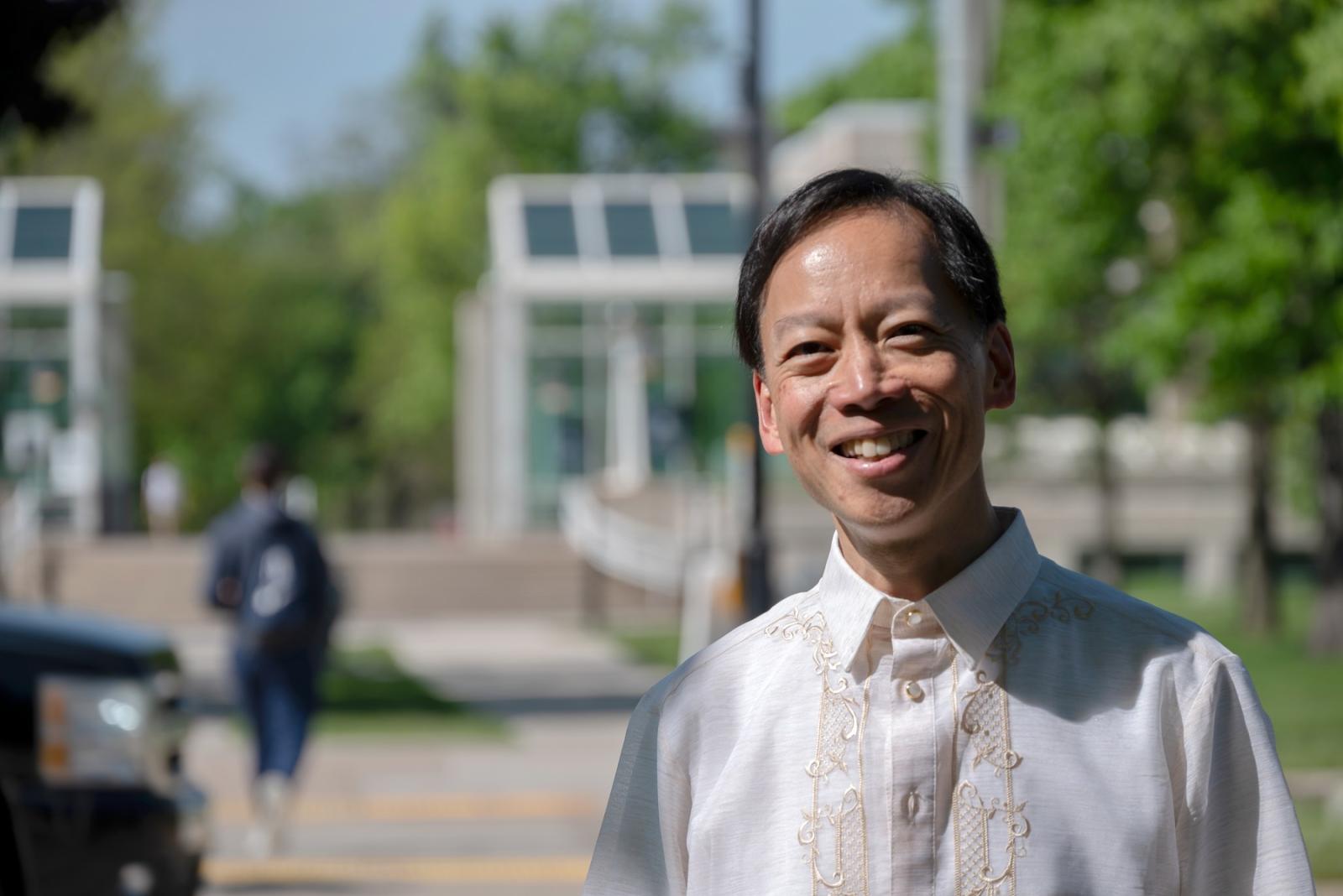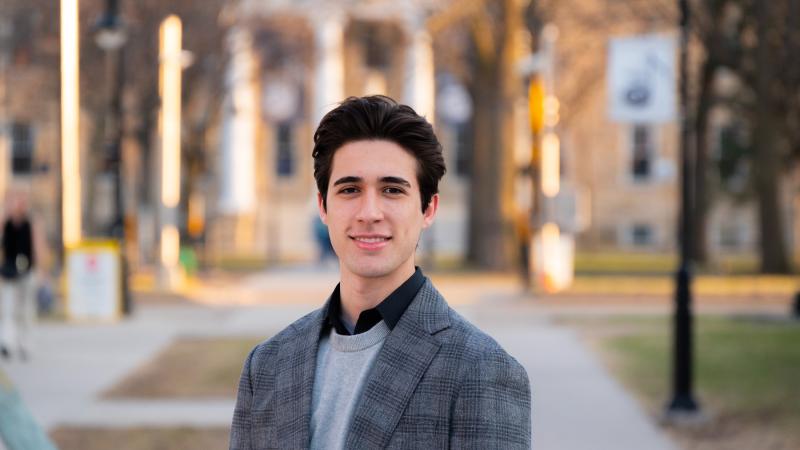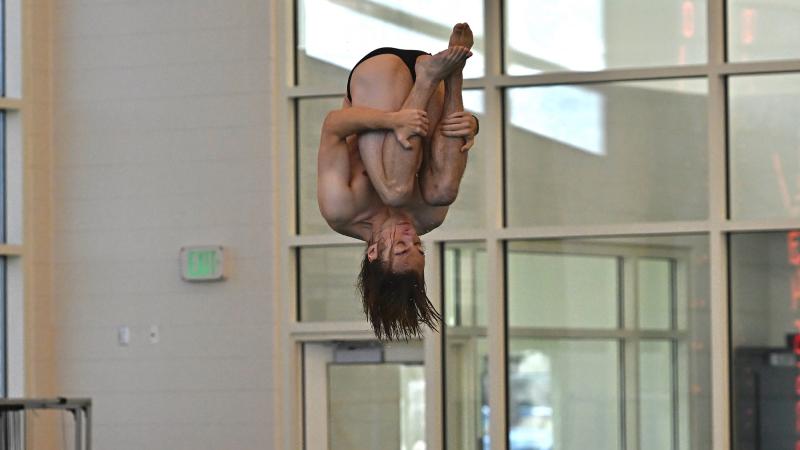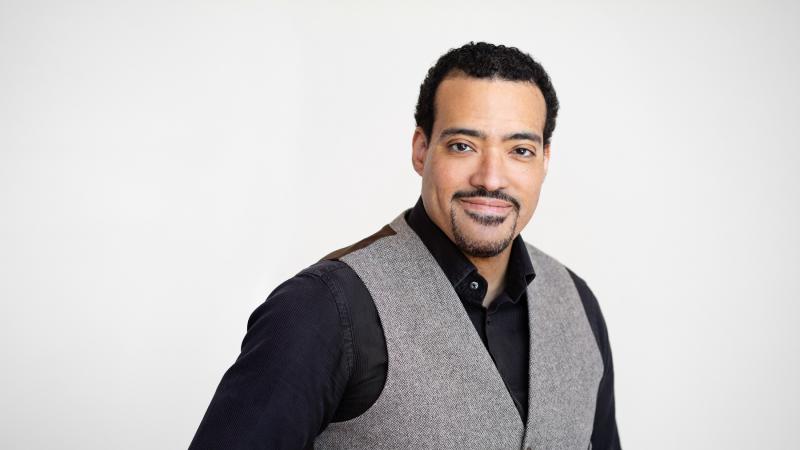About the series: On Main Hall Green With … is an opportunity to connect with faculty on things in and out of the classroom. We’re featuring a different Lawrence faculty member each time — same questions, different answers.
---
Anthony Padilla, a member of the Lawrence Conservatory of Music faculty since 1997, is a widely acclaimed piano teacher and performer.
He received Lawrence University’s Award for Excellent Teaching in 2017, praised for his encouragement of students to strengthen their technique and develop their individual style and artistic voice. He has brought that same yearning for exploration and creativity to collaborations across academic disciplines in recent years, most notably in studying the cultures of Latin America and the Asian Pacific Islands.
An American pianist of Filipino-Chinese ancestry, Padilla has performed as a guest artist across North America, Europe, and Asia. His artistry on the piano has been praised for its “enormous freshness, vitality, and poetry” (Chicago Tribune).
A protégé of the legendary pianist Jorge Bolet, Padilla was awarded the prestigious Beethoven Fellowship by the American Pianists Association and top prize at the Concert Artists Guild International Competition. He is a founding member of the Arcos Piano Trio.
Grow your artistry, build your technical facility, and expand your musical possibilities in a community of empowerment, collaboration, and support.
Padilla earned his Bachelor of Music in piano performance at the Curtis Institute of Music and Northern Illinois University and a Master of Music and a Doctor of Musical Arts in piano performance and literature at Eastman School of Music.
We caught up with him to talk about interests in and out of the classroom.
In the classroom
Inside info: What’s one thing you want every student coming into your classes to know about you?
Despite what they may have heard, I’m actually the meanest, scariest piano teacher who will make them practice their scales eight hours a day! Seriously, I am committed not only to helping students hone their technical skills at the keyboard, but to direct these skills toward developing their own individual voice and musical personality. In addition to guiding students’ understanding of the centuries of Western classical tradition, I enthusiastically encourage their celebration of historically under-represented and marginalized composers, especially those from indigenous cultures, in efforts to include more of these voices in concert halls and to move our art forward.
Getting energized: What work have you done or will you be doing at Lawrence that gets you the most excited?
Over the last dozen years or so, I have enjoyed the opportunity to collaborate with members of the Spanish and Latin American Studies departments on grant projects exploring music, art, literature, and food from South/Central America and the Caribbean. These projects provided fascinating opportunities to celebrate Latinx culture via a dynamic interaction of creative fields. More recently, I have enjoyed coaching Filipino music students on a program of Kundíman (Filipino folk songs) and collaborating with Filipino composers and performers on a Lawrence University Research Fellowship project transcribing indigenous music from the Asian Pacific Islands. My students and I have been invigorated by the opportunity to delve into music from our shared API heritage. I’m also excited by the chance to advise my current international students on exploring music from their own heritage, including music from Turkey, Ukraine, Vietnam, Japan, and China.
Going places: Is there an example of somewhere your career has taken you (either a physical space or something more intellectual, emotional, or spiritual) that took you by surprise?
During my first overseas trip to perform at international music festivals in Europe, I arrived in Rome and spent my first day there wandering into various churches throughout the city. In one of the first churches I entered, I inadvertently found myself face to face with Caravaggio’s dramatic painting of St. Paul’s conversion on the way to Damascus in the church of Santa Maria del Popolo’s Cerasi Chapel. It brought me to my knees and left an indelible image in my memory.
Out of the classroom
This or that: If you weren’t teaching for a living, what would you be doing?
Teaching, like performing, is more of a passion for me rather than merely a means to making a paycheck, so I would want to continue teaching and performing on a freelance basis, regardless of making a living at it. Taking a break from musical activities, I’d love the chance to camp and hike the Alaskan wilderness with my wife, two sons, and our dog, Polo, savoring the evening light of the summer solstice together.
Right at home: Whether for work, relaxation or reflection, what’s your favorite spot on campus?
Stepping onto the Chapel stage, with its magical acoustics, I feel the haunting presence of ghosts from past performances, and I draw inspiration for creative music-making.
One book, one recording, one film: Name one of each that speaks to your soul? Or you would recommend to a friend? Or both?
Book: Constantin Stanislavski’s An Actor Prepares – Stanislavsky’s method for training actors to “live” their roles directly parallels the challenge of performing artists to inhabit the vast range of characters and emotions explored in musical works.
Recording: Johann Sebastian Bach’s St. Matthew Passion performed live by the Royal Concertgebouw Orchestra conducted by Willem Mengelberg in 1939 – musicmaking so profoundly human that it moves me to tears every time I hear it.
Film: Charlie Chaplin’s The Great Dictator – Chaplin’s model of humility and humanity in his final speech provides a crucial message for all of us during this troubling time of rising authoritarianism in the world.
See more faculty profiles in the On Main Hall Green With ... series.




